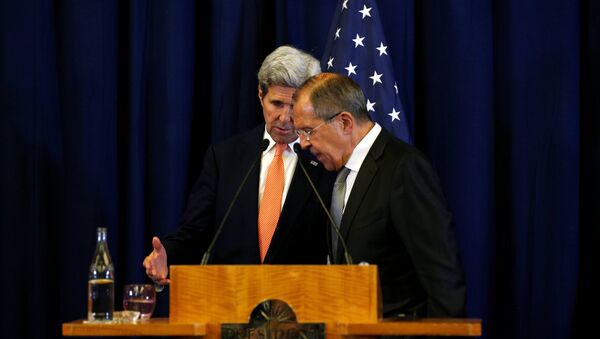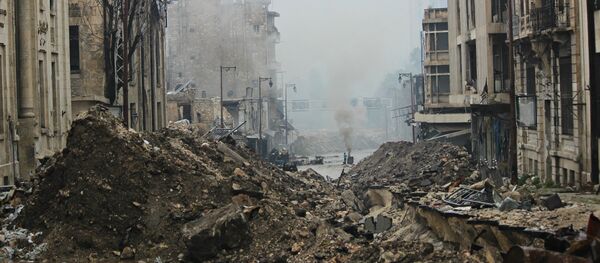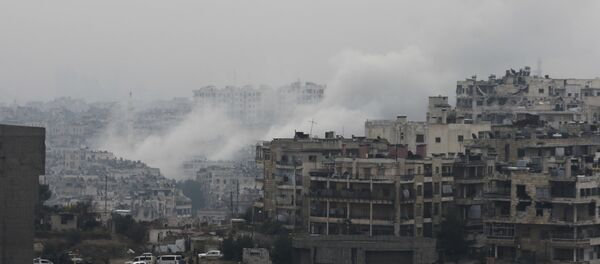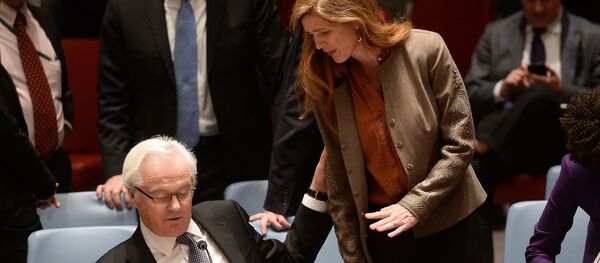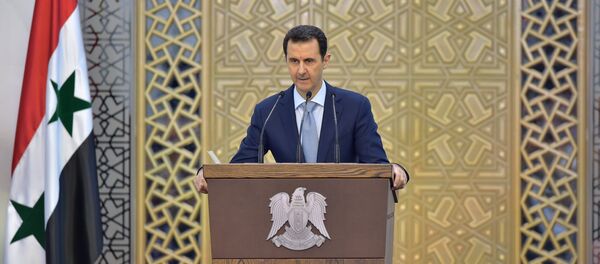Friday's announcement came several days after the Syrian army took over some 96 percent of east Aleppo's militant-held areas.
On Tuesday, the Turkish Foreign Ministry said a ceasefire deal was reached between government forces and militants to allow for the evacuation of civilians. The deal has since been violated a number of times, yet this did not stop both civilians and militants from seizing the chance to leave the city. Russia and Turkey agreed to oversee evacuations from Aleppo, with the numbers reaching up to 10,000 fresh evacuees throughout Friday.
Diplomatic Row
The United States temporarily suspended contacts with Russia after the advance began, accusing Russian jets covering Syrian forces of hitting hospitals and targeting aid workers in so-called double strikes on the same area. The West also said Russia was attacking moderates rather than terrorists. The Russian side stressed its strikes only targeted militants and accused the United States of failing to separate moderate opposition forces, claimed by the latter to be present in the city, from terrorists such as Jabhat Fatah al-Sham, formerly known as al-Nusra Front.
The diplomatic row continued to escalate, with the United States, the European Union and some UN officials accusing Russia and Damascus of committing atrocities during the rapid offensive on militant-held areas. In response, Russia stressed the operation was being carried out as humanely as possible with care taken to let civilians flee along available corridors. The Syrian government also allowed lightly armed militants safe passage out of the city into the Idlib province, but the opportunity was not seized as al-Nusra Front vowed to continue resistance.
Russian Deputy Foreign Minister Gennady Gatilov lashed out at the UN official, stating that not a single civilian had been evacuated despite the United Nations preparing to evacuate some 200 people. The deputy minister also warned that terrorists in eastern Aleppo mostly use humanitarian pauses to regroup and regain strength instead of letting people leave their territory.
On Thursday, Russia called again on UN structures to immediately join efforts to provide humanitarian aid to Syrians.
Final Push
The final push came in early December amid claims by the West of a humanitarian catastrophe inside the city as civilians still trapped in the east witnessed the advance. By December 4, the Russian Defense Ministry said over half of formerly militant-controlled territory had been recaptured by government forces. A few days later the militants had control of less than a third of east Aleppo, losing all but several square miles of urban terrain.
As US Envoy to United Nations Samantha Power attacked Russia, Syria and Iran in the Security Council over being "incapable of shame" and contributing to the killing of thousands of civilians, the Syrian army suspended its offensive to allow the evacuation of civilians from the eastern neighborhoods of the city through humanitarian corridors launched by the Russian reconciliation center during previous mediation attempts.
The United Nations and the UN Security Council itself saw an increasingly bitter atmosphere during the last stages of the offensive. A number of gulf states, exasperated with a protracted impasse in the Security Council, urged for an emergency General Assembly, while Russia and China blocked a US-backed UNSC resolution on a humanitarian pause deeming it half-baked. The UK envoy reacted vehemently to China's siding with Russia only to be criticized by the Chinese envoy for "poisoning" the council's atmosphere. The council is set to turn to the issue of Aleppo again on Friday after France called for the ongoing evacuation to be addressed the day before.
War Far From End
Syrian political analyst Ali Salim Assad compared the battle for Aleppo with the Battle of Stalingrad, a major battle of World War II between the Soviet Army and Nazi Germany.
"It [Aleppo liberation] is a turning point to some extent, in Syria, the analogy with the battle for Stalingrad is often drawn. But we know that three long years passed after the battle for Stalingrad before the war ended," the analyst told Sputnik.
He added that terrorists were still widely present in Aleppo northern outskirts, around Damascus, in Idlib province and in Palmyra.

